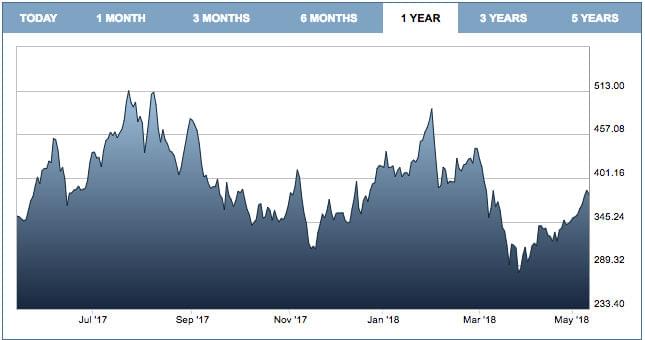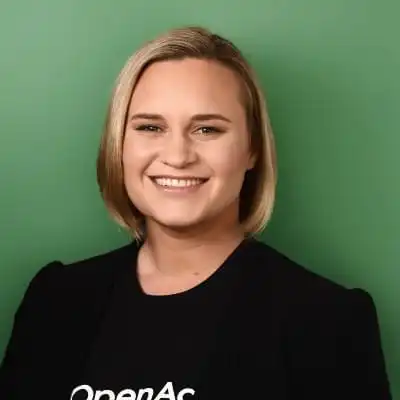How does Purple Bricks work?
Update: Purple Bricks has exited the Australian market.
What is Purple Bricks?
Purple Bricks is a low cost real estate agency model, launched in 2013. It has some traction in its home market in the UK, and entered into the Australian market in September, 2016.
The key message behind Purple Bricks is that a house can be sold for much cheaper than when using a traditional real estate agent. The current prices for Purple Bricks in Australia are $8,800 for a sale by private treaty and $9,460 for a sale by auction.
Read: Why you need an agent to manage the sale of your house
Purple Bricks cost: Quick facts
| NSW, QLD, VIC and SA Fees | Cost |
|---|---|
| Upfront fee | $4,400 |
| Success fee | $4,400 |
| Auction fee | $660 |
| WA Fees | Cost |
|---|---|
| Upfront fee | $2,200 |
| Success fee | $6,600 |
| Auction fee | $660 |
- Purple Bricks makes money by charging vendors a $4,400 upfront fee in NSW, QLD, VIC and SA, and $2,200 upfront fee in WA.
- This upfront fee covers the cost of the materials needed to list and market the vendor's property, and is payable whether or not the property sells.
- If a vendor chooses to sell via auction, an additional $660 is charged for an auctioneer.
- Should the property sell, Purple Bricks then charges an additional success fee for the settlement of the sale.
- In NSW, QLD, VIC and SA, the success fee is $4,400. In WA, the success fee is $6,600.
- All up, the cost of a successful Purple Bricks private treaty sale is $8,800 and the cost of a successful auction sale is $9,460.
How does Purple Bricks work for the home seller?
The process for a seller starts by booking a property appraisal. This can be done online. Using an online form, the seller can enter in their address, choose a day and time, and confirm an appointment with their "Local Property Expert". For any direct enquiries you can call the Purple Bricks customer service line.
A Local Property Expert is someone who works for Purple Bricks, basically like a franchisee or local office of any other real estate agency (e.g. Ray White, LJ Hooker, etc). One difference between Purple real estate and traditional real estate agencies is that Purple Bricks Local Property Experts do not have offices - they work remotely and come to the seller's home for any face-to-face interactions.
At this appraisal appointment, the seller needs to work out whether they would like to use Purple Bricks to sell their property. The Local Expert will create a floorplan of the property and give the seller an idea of what the property may be able to sell for in the current local real estate market.
How much does it cost to use Purple Bricks?
If the seller chooses to go ahead and use Purple Bricks to sell their property, they can either choose to sell by private treaty or by auction.
The Purple Bricks fixed fee for NSW, QLD, VIC and SA is broken down by:
- Marketing package + listing and publication of your property (upfront): $4,400 inc. GST
- Settlement of the sale of your property (success fee): $4,400 inc. GST
- Auction fee (if you choose to sell via auction): $660 inc. GST
The fixed fee for WA, however, is broken down in a different way:
- Marketing package + listing and publication of your property (upfront): $2,200 inc. GST
- Settlement of the sale of your property (success fee): $6,600 inc. GST
- Auction fee (if you choose to sell via auction): $660 inc. GST
Sellers can pay these fees either by paying in full through Purple Bricks' Pay Now option or by deferring it through the Pay Later option.
In choosing the latter, sellers must make their payment either when their property sells, on the date they choose to withdraw their advert from the market or after 6 months of signing with Purple Bricks.
"When using Purple Bricks' services, it's important to note that sellers will be held liable to pay the upfront fee whether or not the property sells."
When using Purple Bricks' services, it's important to note that sellers will be held liable to pay the upfront fee whether or not the property sells. The success fee, however, will only be payable if the property sells and the settlement has been finalised.
How does Purple Bricks make money?
As previously discussed, sellers who choose to use Purple Bricks are charged a fixed upfront fee of either $4,400 or $2,200 for the listing of their property. This fee, while it covers the costs of the materials needed to market the seller's property, is payable whether or not the property sells. This means Purple Bricks still make their money regardless of whether or not the sale is successful.
In contrast to this, traditional real estate agents will only earn their commission once they have successfully sold their vendor's property.
What do the Purple Bricks fees cover?
The Purple Bricks fee includes the following services:
- A dedicated 'Local Property Expert' for processes such as negotation and property viewings
- A Purplebricks signboard
- A property advert, including the copywriting and floorplan
- A premier listing on realestate.com.au and a standard listing on Domain and Purplebricks
- A professional photography package
- The services of a professionally qualified auctioneer and management of proceedings on the day of the auction
- Phone support
- Access to Purplebricks' online portal
After the appraisal appointment, the Local Property Expert will prepare an advertisement of the property. This will be reviewed and approved by the seller and then made public on realestate.com.au and domain.com.au.
Prospective buyers are able to view properties for sale and if they are interested, use the Purple Bricks portal to make an appointment to view the property. These viewings are then assisted by the Local Property Expert.
This is different to conventional transactions as most buyers typically look for open homes on real estate websites like realestate.com.au or domain.com.au and then turn up to the publically available open home (which is usually on a Saturday, when most buyers are out and about looking at properties).
Once a buyer has decided that they would like to make an offer on a property that is for sale with Purple Bricks, the buyer will submit their offer on the Purple Bricks' portal. The seller can immediately see when an offer is made and has the option to accept or reject them via the portal.
Purple Bricks offer process
Once an offer has been accepted, Purple Bricks provides a support service to help the seller navigate the conveyancing process (the process of legally and correctly transferring the property from one owner to another). However, looking at the different parts of the post-sales process and who is responsible for them, it appears that the process relies heavily on work done by the seller themselves, their conveyancer of choice or Purple Bricks' Recommended Conveyancer (third party service provider, Lawlab Pty Limited).

Breakdown of responsibilities in the post-contract phase of sale under the Purple Bricks business model
The Seller is responsible for:
- Entering lawyer details on the online platform within 24 hours of agreeing to an offer;
- Ensuring the lender has all the relevant information to proceed with the loan;
- Ensuring the lawyer has all the details and paperwork they need;
- Chasing the lawyer for paperwork and progress;
- Agreeing exchange and settlement dates.
The lawyer or conveyancer is responsible for:
- Ensuring the lender has all the relevant information to proceed with the loan (both buyer and seller lenders)
- Advising and supporting the seller in relation to problems arising in building and pest reports, strata inspection, or mortgage position
- Obtaining leases and legal documentation as well as liaising with the buyer’s lawyer
- Agreeing exchange and settlement dates
Purple Bricks’ support team is responsible for:
- Ensuring that the seller has put their lawyer’s details onto the platform
- Ensuring that the mortgage arrangements are in place
- Advising and supporting the seller in relation to problems arising in building and pest reports, strata inspection, or mortgage position
Purple Bricks reviews and what sellers think of the service
Purple Bricks, and several other models similar to Purple Bricks in the UK (“Hybrid or Online Estate Agents”), have grown quickly over the last five years. In total, these kinds of agents help around 5% of sellers in the UK.
The strong growth and key reason for people using Purple Bricks has been driven by the competitive price charged for the service (less than 1000 pounds in the UK outside of London). In Australia, the price of the service ranges between $8,800 and $9,460.
For the average Australian property, this compares to around $12,000 in agent commission plus $2,500 in marketing, or $14,500 total price to sell a property. This represents a saving of approximately $5,040 for the average property when compared to a traditional real estate agent.
Read: What commission rates to expect when selling property
Purple Bricks: what is the catch?
There are several criticisms of Purple Bricks and Hybrid Estate Agents that potential sellers need to be aware of.
1. You'll be charged a fee, even if your property doesn't sell
Purple Bricks charges the customer their upfront fee regardless of whether the property is sold or not. This means that if the seller does not get an offer they are satisfied with, they must still pay the fee of $2,200 or $4,400. In Australia, 20-25% of properties change agents or are removed from the market, which means that 20-25% of sellers will need to pay the fee without actually selling their property.
2. Local Property Experts or agents are paid upfront
The Local Property Experts are paid for both listing the property and selling it. This means they receive payment regardless of whether or not properties are successfully sold. This could disincentivise them to help sellers through the actual selling process.
3. Critics estimate Purple Bricks has a poor and slow track record of selling
In June 2016, Anthony Codling, an analyst at global investment bank Jefferies disputed Purplebricks' claim of a 77% sale agreed rate. Codling stated that one in three home sellers paid the full fee but were actually unsuccessful in selling their home.
These figures were revisited again in July 2016, with Codling noting in correspondence with investors, "due to time lags in the Land Registry Database, we only looked at properties which were registered as sold on or before March 31 2016. Overall we were able to trace 14 percent of the properties classed as 'sold' between October 29 2014 and March 31 2016 to the Land Registry database.
Codling continued: "We hope that for their [Purplebricks] customers the saying 'all comes to they who wait' is true. The lucky 14 percent who have sold their homes waited on average around 4.5 months between selling subject to contract and actually selling. For the rest the wait has been around 6.5 months so far and the clock is still ticking."
In January 2018, Codling made a revision that found that actually 51.6% of properties in November 2016 were sold within 10 months, compared to chief executive Michael Bruce’s on air claim of 88% in October that year.
Purple Brick’s responded that the figure does not reflect the 20% of properties temporarily withdrawn from the market. Codling quickly asserted that a deferred income should make up for this 20% revenue, however it has accounted for less than 5%.
Amidst Codling’s scathing report, Purple Bricks’ shares slid four per cent in February 2018.

4. Local Property Experts aren't paid much for each listing
The Local Property Experts are not paid very much for each real estate listing, which means they must focus on doing many in-person appraisal appointments (some critics claim more than five per day). This leaves little time to help their clients who are already on the market.
5. You probably won't get the very best local agents
The model which focuses on a very high volume does not typically attract the most experienced, qualified agents/realtors as Local Experts. This means that while the seller has support from a Local Expert, they may or may not be getting the best advice available through the process.
So while the price and potential savings may be very attractive, the different way of selling property also comes with some warnings from critics.
6. Purple Bricks was fined by Queensland’s consumer watchdog
In March 2018, the Office of Fair Trading Queensland ordered Purple Bricks to pay a $20,000 penalty for engaging in false and misleading information regarding their advertising fees after customer complaints. Purple Bricks has quickly updated their website and advertising to reflect more clearly their fee structure.
The watchdog determined that the company had also “failed to fulfil some of its regulatory obligations about the use of appropriate accounts software”.
Purple Bricks reviews: what are consumers saying?
On their Australian website, Purple Bricks shows they have 2,530 independent reviews of the service on Trust Pilot, with a five star rating. Their UK site shows over 44,000 positive reviews.
However, the company has come under scrutiny from some industry commentators in the UK for manipulating their reviews, and suggest that people look around at their UK Facebook reviews and Google+ reviews to get a more balanced view of the seller.
Product Review Australia reflects a 3.2 star rating for over 200 reviews. A recent search of their Facebook pages in both the UK and Australia shows that their review section has been removed and replaced with the Trust Pilot reviews.
“At OpenAgent we welcome consumer choice: our mission is to make it easy for Australians to sell their property, however they like.”
In summary
Purple Bricks is a hybrid estate agency that works on a flat fee pricing model rather than the conventional commission model. This means the level of service they offer to sellers is more than 'for sale by owner' but less than a traditional, full-service real estate agent. Purple Bricks has designed a very cheap way of selling properties in the UK, and have brought this to Australia, and are now expanding operations in the USA.
Sellers are usually attracted to the cheaper cost versus a traditional real estate agent approach, but should also be cautious about the implications of going with a lower level of service through the process of selling their property.
At OpenAgent we welcome consumer choice: our mission is to make it easy for Australians to sell their property, however they like. We look at Purple Bricks and other Hybrid or Online offers with the seller's best interests at heart and we will continue to watch with interest to see whether they are delivering great customer outcomes.






